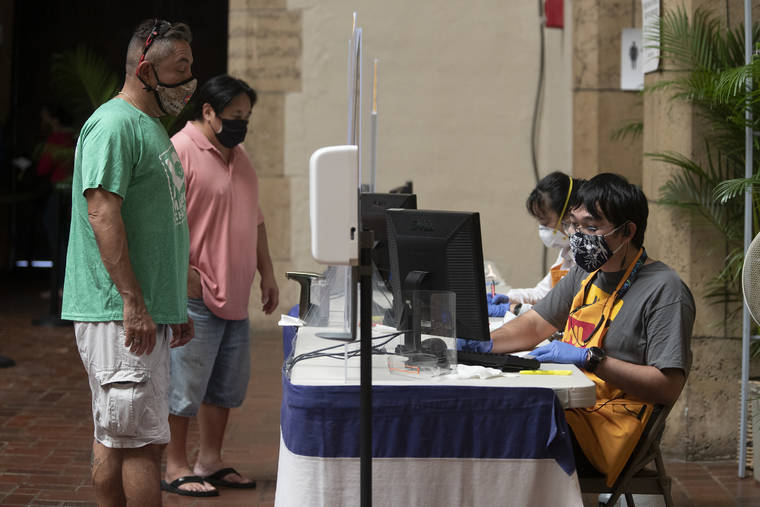Before we get carried away by the higher number of votes in the recent primary election, let’s remember that there are nearly 800,000 registered voters in Hawaii — and nearly half of them did not vote. Yes, turnout was better than expected. But we must ask ourselves why, out of a citizen population of over a million of voting age, just 406,425 voted. Thousands chose not to exercise a right that many in other countries are still fighting to secure.
The obstacles to voting are both personal and public. Coping with a pandemic, struggling to make ends meet, feeling uninformed about the issues or the candidates — these are all perfectly reasonable explanations for why some choose to pass on voting. But doing so carries with it a steep price. To not vote is to affirm the status quo.
Are we so satisfied with the status quo that we can afford to pass on helping to decide who frames the policies that shape our lives? Is Hawaii doing enough to address the climate crisis? Are we doing enough to end houselessness? Are the workers we label “essential” paid a living wage? Can they feed their families? Are we proud of the fact that the minimum wage in this state is $10.10 — far short of the nationwide fight for $15, and even further from the $17.63 an hour that the state’s own Department of Business, Economic Development and Tourism (DBEDT) says a single person, working full-time, needs to survive?
Are we not tired of a “justice” system that has the poor languishing in jail because they cannot make bail — while the well-connected who have been convicted of serious crimes enjoy their freedom as their lawyers work the system to the hilt? Are we satisfied with how our elected officials and bureaucrats are handling the pandemic? Are we satisfied with years of talk about diversifying the economy while tourism continues to be a bullying Goliath, gigantic — and vulnerable?
We do not have to agree on the answers to these questions to recognize that there is a level of dysfunction, and performance inadequacies that must be addressed if we are to make Hawaii a place where our children can have careers and raise their families. It is folly to ask those who presided over the emergence of these crises through years of incumbency to fix what is broken.
This primary election saw a number of brave candidates with much to offer who stepped up to answer the challenge of building a healthier, more just community. The least we can do is say “aye” or “nay.” To pass on voting is not an act of freedom; it is a shirking of responsibility.
I am struck by how often I hear the refrain that “this is a free country.” Whether it is about wearing a mask or voting, not doing so in the name of “freedom” is disrespectful. Shouldn’t we be teaching our children that the other side of the coin of freedom is responsibility? If we want our children to strive for excellence, can we afford to model anything less than excellence in how we govern, in how we conduct our politics, and in how we help our neighbor?
We cannot view having just about half of all registered voters participate in our elections as a stellar performance. Our elections officials at the state and county level must do more. We must have more than the pitiful eight voter service centers statewide for the general election. Ballot drop-off boxes must be ubiquitous. And each of us can do more to recruit friends and family to do what a freedom-loving country should be proud to do: exercise our freedom — and responsibility — to vote.
Dawn Morais Webster, who advocates with nonprofits on societal issues, is an adjunct faculty member at the University of Hawaii-Manoa.

